Уильям Моэм - Мистер Всезнайка. Рассказы
- Название:Мистер Всезнайка. Рассказы
- Автор:
- Жанр:
- Издательство:неизвестно
- Год:неизвестен
- ISBN:нет данных
- Рейтинг:
- Избранное:Добавить в избранное
-
Отзывы:
-
Ваша оценка:
Уильям Моэм - Мистер Всезнайка. Рассказы краткое содержание
Метод чтения Ильи Франка
Мистер Всезнайка. Рассказы - читать онлайн бесплатно полную версию (весь текст целиком)
Интервал:
Закладка:
issue ['ISu:, 'Isju: ], character ['kxrIktq], essential [I'senS(q)l], monsieur [mq'sjW]
" ‘The question at issue is this. Monsieur Untel is proposing to engage Henri Renard. He is very particular about the character of his employees, and in this case it is essential that he shouldn’t make a mistake. Part of Henri Renard’s duties would be to pay the crews of the firm’s ships, and many hundreds of thousand francs will pass through his hands. I know that Henri Renard is your great friend and that your families have always been very intimate. I put you on your honour to tell me whether monsieur Untel would be justified in engaging this young man.’
"I saw at once what the question meant (я тут же понял, что означал этот вопрос; tosee— видеть; понимать, сознавать ). If Riri got the job he would stay and marry Marie-Louise (если Рири получил бы работу, он бы остался и женился на Марии-Луизе), if he didn’t he would go out to Cambodia and I should marry her (если же нет, он бы отправился в Камбоджу, и я бы женился на ней). I swear to you it was not I who answered (я клянусь вам, что отвечал не я, а кто-то другой), it was someone who stood in my shoes and spoke with my voice (это кто-то другой был в моей шкуре: «стоял в моих ботинках» и говорил моим голосом), I had nothing to do with the words that came from my mouth (я не имел никакого отношения к тем словам, что слетали с моих губ: «исходили из моего рта»).
" ‘Monsieur le directeur,’ I said (я сказал: «Господин директор»), ‘Henri and I have been friends all our lives (мы с Анри были друзьями всю жизнь). We have never been separated for a week (мы никогда не расставались даже на неделю). We went to school together (мы вместе ходили в школу); we shared our pocket-money (мы делили наши карманные деньги) and our mistresses when we were old enough to have them (и /делились/ своими любовницами, когда мы были уже достаточно взрослыми, чтобы иметь любовниц); we did our military service together (мы вместе служили в армии).’
mouth [mauT], mistress ['mIstrIs], military ['mIlIt(q)rI]
"I saw at once what the question meant. If Riri got the job he would stay and marry Marie-Louise, if he didn’t he would go out to Cambodia and I should marry her. I swear to you it was not I who answered, it was someone who stood in my shoes and spoke with my voice, I had nothing to do with the words that came from my mouth.
" ‘Monsieur le directeur,’ I said, ‘Henri and I have been friends all our lives. We have never been separated for a week. We went to school together; we shared our pocket-money and our mistresses when we were old enough to have them; we did our military service together.’
" ‘I know (я знаю /об этом/). You know him better than anyone in the world (вы знаете его лучше, чем кто-либо еще во всем мире). That is why I ask you these questions (именно поэтому: «вот почему» я и задаю вам эти вопросы).’
" ‘It is not fair, Monsieur le directeur (это нечестно, господин директор). You are asking me to betray my friend (вы просите меня предать моего друга). I cannot, and I will not answer your questions (я не могу и не буду отвечать на ваши вопросы).’
"The director gave me a shrewd smile (он улыбнулся /мне/ проницательной = понимающей улыбкой). He thought himself much cleverer than he really was (он считал себя гораздо умнее, чем он был на самом деле).
fair [feq], betray [bI'treI], shrewd [Sru: d]
" ‘I know. You know him better than anyone in the world. That is why I ask you these questions.’
" ‘It is not fair, Monsieur le directeur. You are asking me to betray my friend. I cannot, and I will not answer your questions.’
"The director gave me a shrewd smile. He thought himself much cleverer than he really was.
‘"Your answer does you credit (ваш ответ делает вам честь; credit — вера, доверие; честь, заслуга ), but it has told me all I wished to know (но он поведал мне все, что я хотел знать).’ Then he smiled kindly (затем он добродушно улыбнулся). I suppose I was pale (полагаю, я побледнел: «был бледным»), I dare say I was trembling a little (мне кажется, я /даже/ немного дрожал). ‘Pull yourself together, my dear boy (возьмите себя в руки, дорогой мой /друг/; to pull oneself together — взятьсебявруки, собратьсясдухом ); you’re upset and I can understand it (вы расстроены, и я могу это понять; upset — опрокинутый; расстроенный, встревоженный ). Sometimes in life one is faced by a situation (иногда в жизни сталкиваешься лицом к лицу с такими ситуациями) where honesty stands on the one side and loyalty on the other (в которых честность стоит на одной стороне, а лояльность — на другой; loyalty — верность, преданность; лояльность, благонадежность ). Of course one mustn’t hesitate, but the choice is bitter (конечно же, колебаться нельзя, но выбор мучителен; bitter — горький/овкусе/;горький, мучительный ). I shall not forget your behaviour in this case (я не забуду вашего поведения в этом деле = я буду помнить, как вы себя повели в этом деле; to behave — вестисебя ) and on behalf of Monsieur Untel I thank you (и от лица этого мсье такого-то я благодарю вас).’
situation ["sItSu'eIS(q)n], loyalty ['lOIqltI], behaviour [bI'heIvIq]
‘"Your answer does you credit, but it has told me all I wished to know.’ Then he smiled kindly. I suppose I was pale, I dare say I was trembling a little. ‘Pull yourself together, my dear boy; you’re upset and I can understand it. Sometimes in life one is faced by a situation where honesty stands on the one side and loyalty on the other. Of course one mustn’t hesitate, but the choice is bitter. I shall not forget your behaviour in this case and on behalf of Monsieur Untel I thank you.’
"I withdrew (я ушел; towithdraw— отнимать, отдергивать; уходить, удаляться ). Next morning Riri received a letter informing him that his services were not required (на следующее утро Рири получил письмо, в котором ему сообщалось, что в его услугах не нуждаются; service— услужение; услуга, одолжение, помощь;torequire— требовать, приказывать; нуждаться /в чем-либо/, требовать /чего-либо/ ), and a month later he sailed for the far East (и месяц спустя он отплыл на Дальний Восток)."
Six months after this Jean Charvin and Marie-Louise were married (через полгода: «/через/ шесть месяцев после этого» Жан Шарвен и Мария-Луиза поженились). The marriage was hastened by the increasing gravity of Madame Meurice’s illness (свадьба ускорилась из-за усиливающейся болезни мадам Мерис; gravity— серьезность, важность; тяжесть, опасность /болезни, положения и т. п./ ). Knowing that she could not live long (зная, что долго она не проживет), she was anxious to see her daughter settled before she died (она стремилась увидеть свою дочь /надежно/ устроенной до того, как умрет; anxious— беспокоящийся, тревожащийся; стремящийся /к чему-либо/ ).
withdrew [wID'dru: ], require [rI'kwaIq], gravity ['grxvItI], anxious ['xNkSqs]
"I withdrew. Next morning Riri received a letter informing him that his services were not required, and a month later he sailed for the Far East."
Six months after this Jean Charvin and Marie-Louise were married. The marriage was hastened by the increasing gravity of Madame Meurice’s illness. Knowing that she could not live long, she was anxious to see her daughter settled before she died.
Jean wrote to Riri telling him the facts (Жан написал Рири, сообщая ему эти обстоятельства) and Riri wrote back warmly congratulating him (и Рири написал в ответ, сердечно поздравляя его). He assured him that he need have no compunctions on his behalf (тот заверил его, что совесть его может быть спокойна на его счет; compunctions — угрызения совести; терзания; раскаяние ); when he had left France he realised that he could never marry Marie-Louise (что когда он покинул Францию, он понял, что никогда не сможет жениться на Марии-Луизе), and he was glad that Jean was going to (и был рад тому, что Жан собирался /жениться на ней/). He was finding consolation at Phnom-Penh (у него получалось находить утешение в Пномпене).
congratulate [kqn'grxtjuleIt], compunction [kqm'pANkS(q)n], consolation ["kOnsq'leIS(q)n]
Jean wrote to Riri telling him the facts and Riri wrote back warmly congratulating him. He assured him that he need have no compunctions on his behalf; when he had left France he realised that he could never marry Marie-Louise, and he was glad that Jean was going to. He was finding consolation at Phnom-Penh.
His letter was very cheerful (письмо его было очень бодрым). From the beginning Jean had told himself that Riri, with his mercurial temperament (с самого начала Жан сказал себе, что Рири, с его переменчивым характером; mercurial — ртутный; живой, подвижный ), would soon forget Marie-Louise (вскоре забудет Марию-Луизу), and his letter looked as if he had already done so (и по его письму было похоже, словно он уже это сделал). He had done him no irreparable injury (/значит/, он не нанес ему непоправимого вреда; irreparable — непоправимый; injury — вред, повреждение, порча, убыток, ущерб ). It was a justification (это было оправдание = так он оправдывал сам себя). For if he had lost Marie-Louise he would have died (потому что, если бы он /сам/ потерял Марию-Луизу, он бы умер); with him it was a matter of life and death (для него это был вопрос жизни и смерти).
Читать дальшеИнтервал:
Закладка:

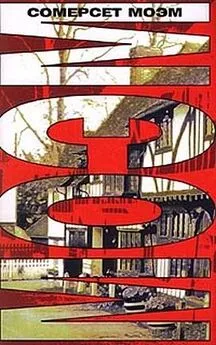
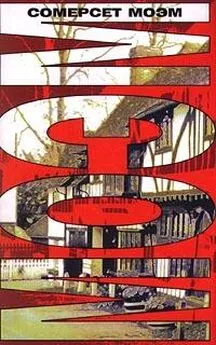
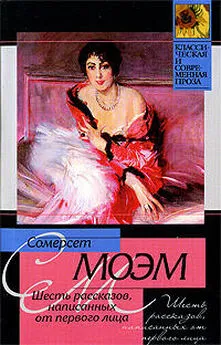
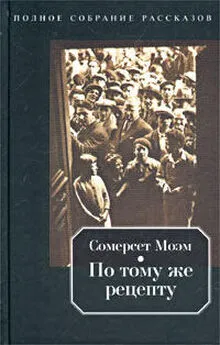
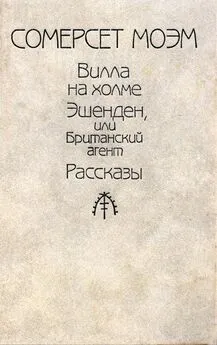
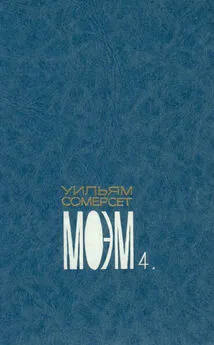
![Уильям Моэм - Сумка с книгами [Рассказы]](/books/1081361/uilyam-moem-sumka-s-knigami-rasskazy.webp)